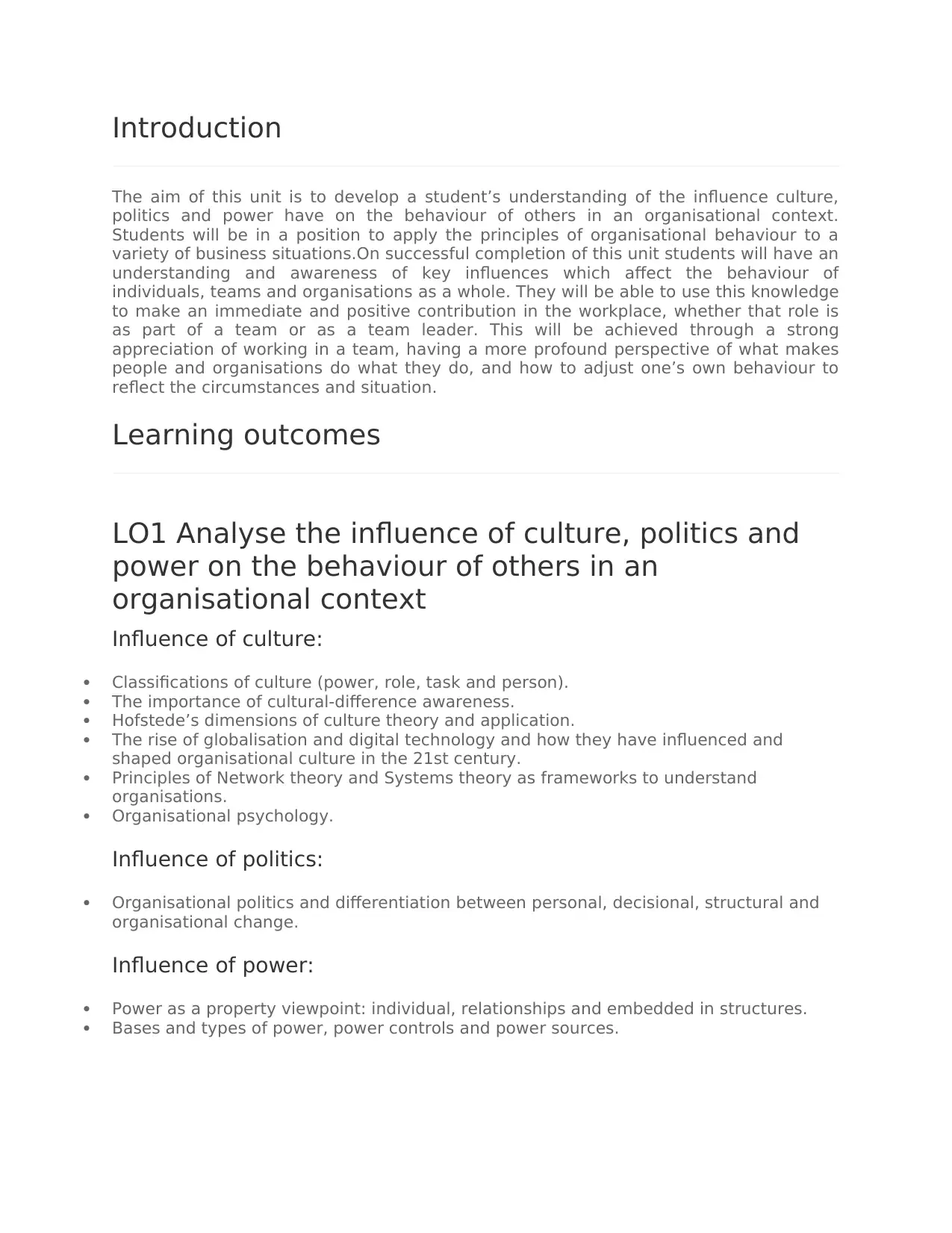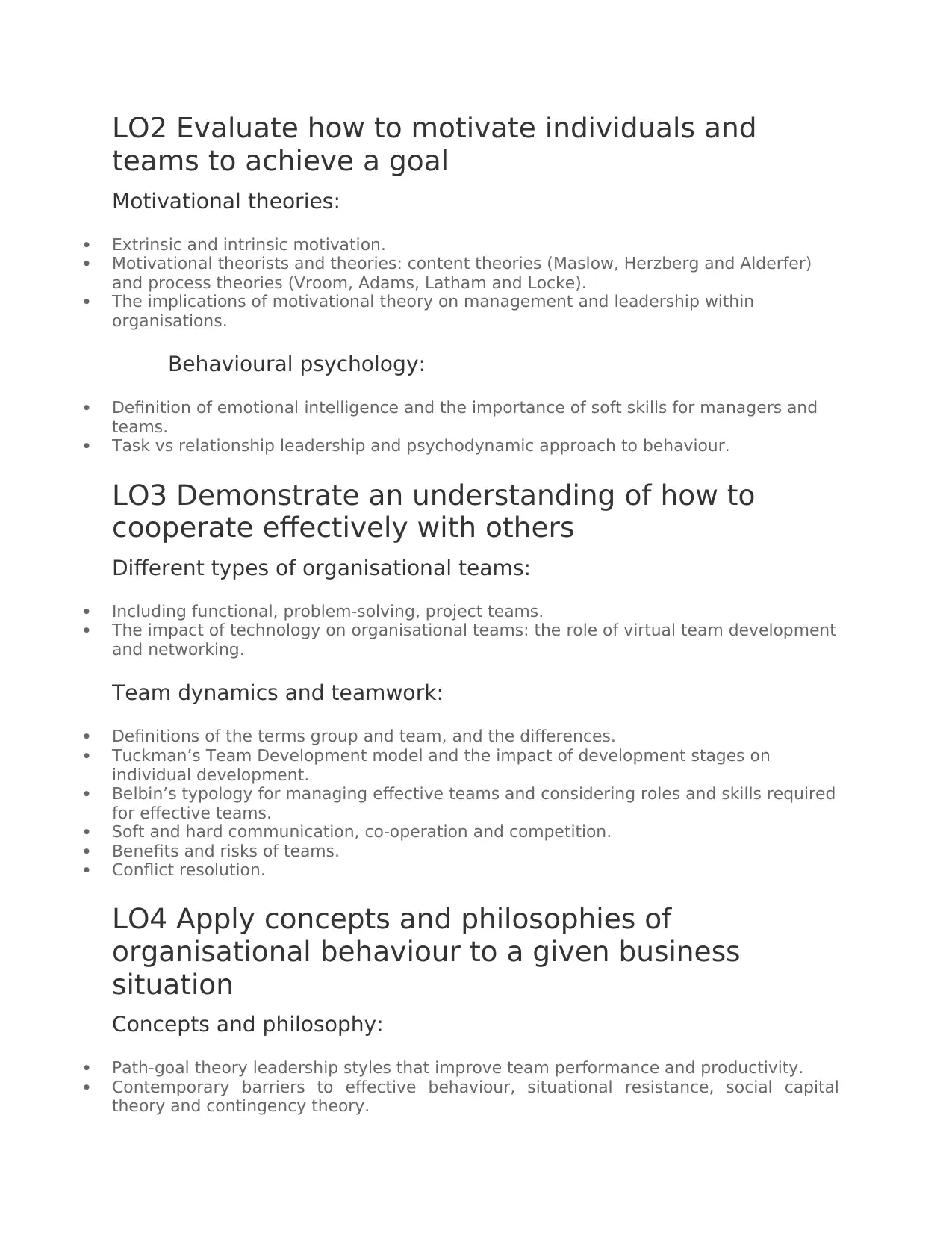Organisational Behaviour Report: The Impact of Motivation and Teams
VerifiedAdded on 2021/05/29
|2
|542
|210
Report
AI Summary
This report delves into the core concepts of organizational behaviour, focusing on leadership, teamwork, and motivation within a business context. It examines the influence of culture, politics, and power dynamics, providing insights into how these factors shape individual and group behaviour. The report explores the role of motivation, including both intrinsic and extrinsic factors, and how these apply to the theories of various scholars. It analyses how teams are formed, developed, and managed, including an examination of team dynamics, the Tuckman model, and Belbin's typology. Furthermore, the report discusses the application of these concepts to specific business situations, incorporating path-goal theory, contemporary barriers to effective behaviour, and social capital theory. This report offers a comprehensive overview of the key elements of organisational behaviour, providing valuable insights for students and professionals alike.
1 out of 2





![[object Object]](/_next/static/media/star-bottom.7253800d.svg)